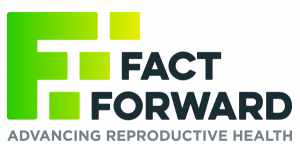In this training, participants will improve their skills in talking with adolescents about delicate topics and answering sensitive questions. By becoming an Askable Adult, participants will gain essential tools to support teens in making healthy decisions about relationships, love, and sex.
Training Hub
The Sex Education Collaborative Training Hub lists trainings for sex educators, facilitators, and other professionals on best practices for sharing important information with clients and the public. From teaching anatomy inclusively to effectively addressing bias in the classroom to addressing racial justice and equity in sex education, the Training Hub includes trainings, technical assistance, and policy support from state, regional, and national leaders in the field of sex education.
Please note: The Training Hub includes both in-person and online professional trainings. If you see a training you are interested in and it isn’t listed as virtual, please reach out directly to any of our members to find out what's possible!
Trainings Offered by State-Based and National Organizations
Displaying results 136 - 137 of 137Askable Adult: Talking to Teens About Tough Topics
- Indicator 1 (K-12): Demonstrate three techniques to create an inclusive and affirming learning environment. (S)
- Indicator 1 (K-12): Describe three distinguishing characteristics between healthy and unhealthy relationships, involving family, friends, and/or romantic partners.
- Indicator 2 (K-12): Explain three ways that healthy relationships can positively impact personal well-being.
- Indicator 2 (K-12): Demonstrate the ability to effectively respond to three different types of challenging questions. (S)
- Indicator 1 (K-12): Explain the differences between personal and universal values relating to sexuality.
- Indicator 2 (K-12): Describe how verbal and nonverbal expression of personal values, and comfort with topics related to sex education, could impact one’s teaching
Boys and Sex Ed: Beyond Statistics and Stereotypes
Boys and Sex Ed: Beyond Statistics and Stereotypes will help you understand how boys think, feel, and learn about sexuality, as well as learn the necessary tools for teaching in ways that resonate specifically with them.
Format/platform:
- Online Learning Management System (Canvas e-learning), hosted by Rutgers University
- Six-hours of total contact time utilizing videos, podcasts, instructional games, discussion boards, written assignments, presentations, readings, and visual animations
- Asynchronous
- Instructor-led
All content is aligned to the National Sexuality Education Standards, the National Teacher Preparation Standards for Sexuality Education, the Professional Learning Standards for Sex Education, and the Areas of Responsibility and Competencies for Health Education Specialists.
- Indicator 1 (K-12): Demonstrate three techniques to create an inclusive and affirming learning environment. (S)
- Indicator 2 (K-12): Demonstrate three student-centered instructional approaches that support a variety of learning styles. (S)
- Indicator 7 (K-12): Demonstrate the ability to analyze and tailor lesson plans to match the age, developmental stages, cultural backgrounds, and other identities of students. (S)
Additional Trainings offered by out-of-state organizations
- ‹ previous
- 48 of 49
- next ›
What’s Triggering Our Teens? Intimate Partner Violence Edition
Participants will gain knowledge of how intimate partner violence impacts the mental, sexual and reproductive health of young people who witness and/or experience it. Participants will brainstorm strategies to intervene and learn about local, state, and national resources.
This training is designed for:
- Educators
- Teachers
- Substitute Teachers
- Counselors
- Coaches
- Parents
- Clergy
- Community Workers
- Healthcare Providers
- Healthcare Staff
- Clinicians
- Indicator 1 (K-12): Describe three distinguishing characteristics between healthy and unhealthy relationships, involving family, friends, and/or romantic partners.
- Indicator 2 (K-12): Explain three ways that healthy relationships can positively impact personal well-being.
- Indicator 5 (K-12): Describe three ways to help students set and respect personal boundaries in relationships.


